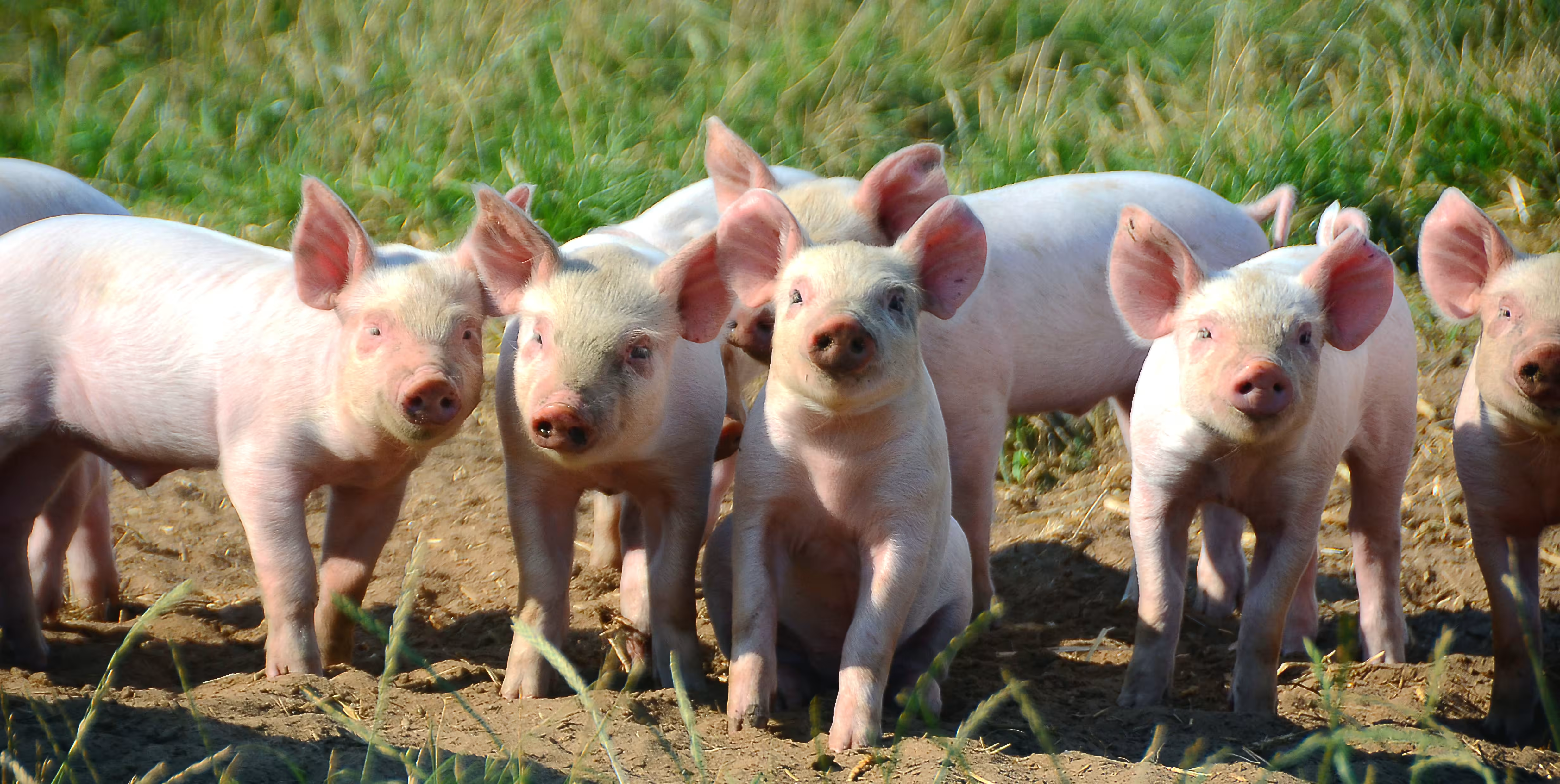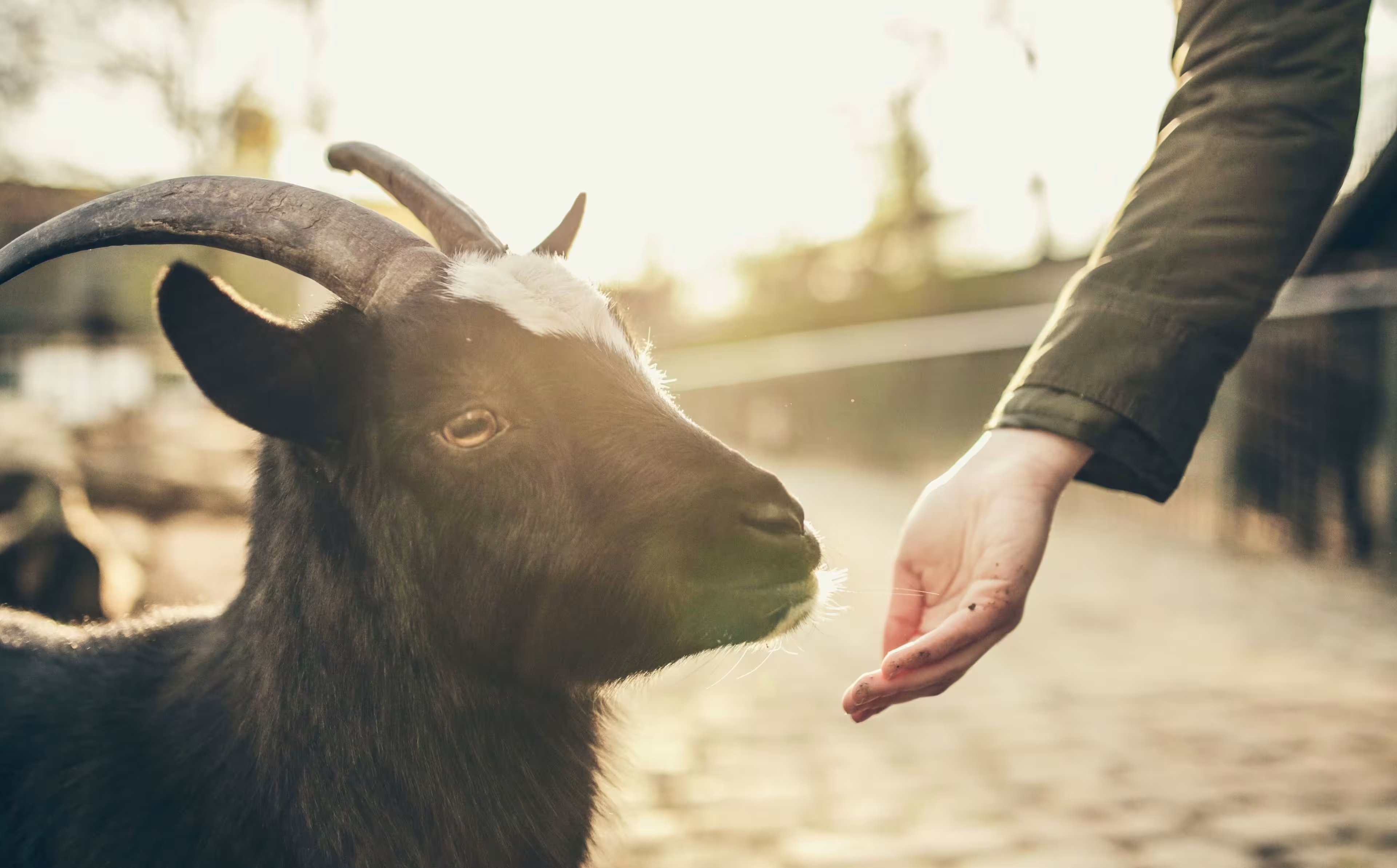




In addition to advocating for welfare improvements, animal charities encourage the public to think critically about how their lifestyle choices impact animals.

These days, the most common encounter many people have with non-domesticated animals is when they consume them, drink their milk, wear their fur or skin, or use cosmetics that were tested on an animal's eyes. For the animals exploited by these multibillion-dollar industries, life is defined by endless pain, constraint, and suffering.
Animal charities act on behalf of these animals, who cannot defend themselves, to lessen or eliminate the suffering they endure at the hands of human beings. Whether protecting animals from being hunted and trafficked, or fighting for animals born and raised on factory farms, animal charities push for improved welfare and help to pass progressive legislation.
WHAT IS AN ANIMAL CHARITY?
An animal charity is an organization dedicated to protecting animals. In the United States, animal charities are designated as 501(c)(3) organizations, meaning they operate in service of a stated mission rather than generating profits as corporations do. All money raised by animal charities usually comes in the form of donations and grants, and it must be diverted to the mission rather than benefiting shareholders or investors.
Animal charities can serve several different issues. While some organizations are dedicated to specific activities, such as animal shelters that care for abandoned or lost companion animals, others operate more broadly, campaigning on a range of domestic and international issues. Below are some examples of the issues that animal charities can address:
- Wildlife trafficking
- Farm animal welfare
- Habitat protection
- Marine mammal advocacy
- Animal exploitation in entertainment (e.g., zoos, aquariums, circuses)
WHY ARE ANIMAL CHARITIES IMPORTANT?
Animal charities form the best, and often only, line of defense for animals. Motivated by their missions rather than financial gain, animal charities advocate for increased protections for animals in legislation and policy. They also raise public awareness of the harms that animals endure at human hands. Many safeguard habitats that will allow animals to exist as they wish in the wild.
Today, the prevailing relationship between humans and animals is one based on domination. Animals are widely considered to be property, both legally and ideologically. Animals are used, and most often abused, for human purposes.
The prevailing relationship between humans and animals is one based on domination.
Laboratories perform surgeries on primates and dogs while they are still alive. Factory farms keep animals inside vast, windowless sheds, often in perpetual darkness, tearing families apart and restraining them in conditions so cramped and filthy that they must be pumped full of antibiotics to survive. Baby animals are eaten while billions more are ground up alive. The outdated and misguided belief that animals exist solely to serve human beings continues to reign supreme.
Much of today’s society in North America and Europe is heavily reliant on animals, forcing them to entertain us, test our makeups and perfumes, produce milk, or become meat. Animal industries—from industrial agriculture, research laboratories, textiles, and entertainment—each generate billions of dollars in annual revenue. The financial incentives for ongoing animal exploitation are truly massive, to the detriment of the animals and workers that process them.
Despite some local and national legislation, the lives, preferences, and experiences of animals are at best considered far less important than the financial gain they offer. At worst, they’re not considered at all.
Without animal charities, animals would remain at the mercy of industries motivated solely by money. With them, animals have a fighting chance. Animal charities inform and encourage the public to think critically about how their lifestyle choices impact animals.
HOW DO CHARITIES HELP ANIMALS?
Animal charities conduct their work by making use of different tactics, including:
- Grassroots activism
- Vegan outreach and public events
- Undercover investigations into places like laboratories and farms
- Legal actions against animal businesses
- Political activism that encourages animal-friendly legislation
Generally speaking, the activities of animal charities typically fall into two categories: animal welfare and animal rights.
Animal welfare relates to the wellbeing of animals who are under the control of humans, in terms of their physical and psychological state. Welfare applies to farms, zoos, and even companion animals in private homes.
The animal rights movement advocates for the total liberation of animals from human exploitation, while recognizing their inherent rights to live as they wish without enduring human intrusions or of any kind, for any reason.
Without animal charities, animals would remain totally at the mercy of industries motivated by money.
While these two realms may seem incompatible, animal charities often address both of these ideas in their mission and focus. For example, The Humane League advocates for welfare improvements—e.g., by persuading companies to improve living conditions for chickens on factory farms—while simultaneously advocating for the elimination of animal products from diets, since the widespread adoption of plant-based lifestyles would prevent animal abuse from occurring in the first place.
The benefit of this multi-pronged approach can be seen throughout the animal protection movement. For example, an important amendment to the Animal Welfare Act, the only federal welfare law in the US, was enacted thanks to the work of the animal rights organization People for the Ethical Treatment of Animals (PETA). Though PETA is a rights-oriented organization, it too advocates for incremental changes to welfare laws.
OUR EFFECTIVENESS AS AN ANIMAL CHARITY
Over the past 15 years, The Humane League (THL) has grown from a small group of grassroots activists to a global nonprofit. In 2020 alone, we and our supporters achieved the following:
- Won commitments that will improve the lives of more than 620 million animals
- Spared more than 220 million chickens from live-shackle slaughter
- Secured animal welfare commitments from 80 corporations, including Whole Foods Market
These and other feats have been widely recognized and have helped The Humane League earn several notable accolades.
Best in America
The Humane League was awarded America’s Best Charities' Seal of Excellence, given to charities that meet the highest standards of public accountability and program effectiveness. America’s Best Charities selects only the finest charities from across the US.
ACE Top Charity
Animal Charity Evaluators (ACE), a respected organization dedicated to promoting the most effective animal charities, has named THL a Top Charity seven times. Ours is the only organization to receive this distinction every year it was eligible.
Seal of Transparency
By remaining transparent, and providing up-to-date information for donors and funders, we have been awarded a Seal of Transparency from Guidestar.
HOW TO DONATE TO OR JOIN THE CAUSE
The Humane League is powered by concerned people like you who want to make a difference for animals. Donations can be made here, where you can send a one-time gift or set up monthly giving.
Our community is always growing, and we have Changemakers all over the world. To learn more about how you can enlist in the fight for animals—either by donating your time, joining the Fast Action Network, or helping to spread the word—visit the Take Action page.
The world would be a much darker place if not for animal charities.
The world would be a much darker place for animals if it weren’t for animal charities. Supporting these organizations in any capacity is a great way to help reduce the plight of animals on factory farms, in zoos, laboratories, and everywhere else they suffer.





